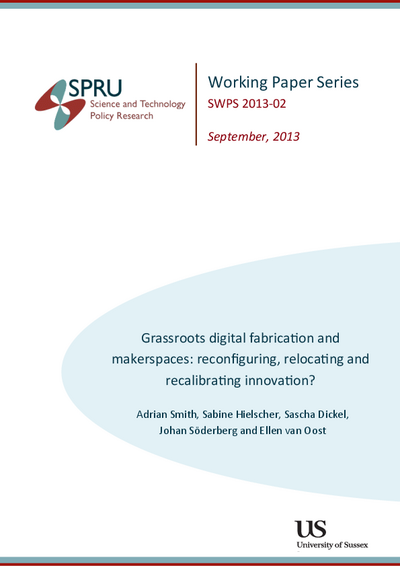Grassroots digital fabrication and makerspaces: reconfiguring, relocating and recalibrating innovation?
Around the world, diverse groups of people are making things together in community-based workshops and their networks. Equipped with versatile digital design and manufacturing technologies, global networks of workshops, like Hackerspaces and FabLabs, provide facilities for exploring 'commons-based peer-production' in practice; and they are spreading rapidly. Emphasis rests in bringing people into collaborative DIY projects where they innovate and learn together - from making toys and jewellery to solar panels and eco-houses - and use online social media to connect to open-source designs, tutorials, and workshops globally.
Our paper develops a conceptual framework for analysing workshops. Drawing upon science and technology studies, social movement theory, and material culture, we consider community workshops configuring and performing production and consumption across three inter-connected levels: networked-communities, local-workshops, and user-projects. Relationships across these levels are complex. When combined with contested ambiguities inherent to sustainable development, then static, life-cycle analyses or similar into sustainability potential is misplaced. Rather, workshops constitute dynamic spaces for experimentation, and it is the emerging capabilities and material cultures that are most significant for aspirations to post-consumer societies.



